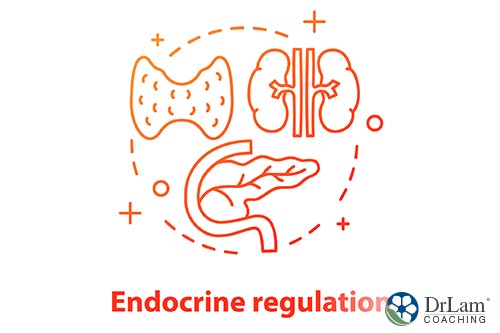 The OMAD diet, or one meal a day diet, is pretty self-explanatory where you only eat one meal in 24 hours. This diet also advocates you to eat anything you want, no matter whether it is healthy or not. In other words, you can eat unrestricted amounts of pizza, chocolate, white bread, potatoes, and steak washed down with some soda of your choice.
The OMAD diet, or one meal a day diet, is pretty self-explanatory where you only eat one meal in 24 hours. This diet also advocates you to eat anything you want, no matter whether it is healthy or not. In other words, you can eat unrestricted amounts of pizza, chocolate, white bread, potatoes, and steak washed down with some soda of your choice.
To make matters more enticing, you get to choose when you sit down to this meal. If you are a lover of big breakfasts that include steak, eggs, grits, then including these foods at one meal is fine as long as you eat only once a day. But this means that, for the rest of the day, you must fast.
The idea behind the OMAD diet, much like that of any other form of intermittent fasting, is that by limiting your eating times, you reduce your overall calorie intake and thus lose weight. All this without actually cutting out any specific food groups. This sounds great, doesn’t it? You might find yourself asking the question: “Is this too good to be true, and if so, is it safe?” Well, this is what we are going to take a look at.
The idea behind fasting is nothing new. People have fasted for thousands of years, whether for religious or health reasons. More recently, intermittent fasting, which has a variety of options, has been employed by many people as a means of losing weight or to regain their health. Although the OMAD diet is making headlines, other forms of intermittent fasting may be a healthier choice.
As the name implies, alternate day fasting sees you alternating days during which you eat, with days during which you only drink liquids like water or tea.
This diet means that you eat normally, i.e. without and restriction, for five consecutive days followed by two days of restricted eating. The two days of restricted eating means you consume no more than 500 calories per day if you are a woman, and 600 calories per day if you are a man.
This form of intermittent fasting sees you not eating or drinking anything containing calories for 16 hours a day. This means there are eight hours during a 24-hour timeframe during which you can eat or drink whatever you want. A flexible fasting program, you can follow this program daily if you so wish or opt to choose to do it a few times a week.
As previously mentioned, this form of intermittent fasting allows you one unrestricted meal per day. You can drink zero-calorie beverages for the rest of the time.
 It is possible to lose weight on the OMAD diet. This is the case: when you cut down on calories, you will lose weight. However, the OMAD diet may not be healthy and is not recommended for people suffering from adrenal fatigue because of metabolic reasons. You may also find yourself hungrier due to eating only once a day and then tend to have a much larger meal than you would normally consume at one sitting.
It is possible to lose weight on the OMAD diet. This is the case: when you cut down on calories, you will lose weight. However, the OMAD diet may not be healthy and is not recommended for people suffering from adrenal fatigue because of metabolic reasons. You may also find yourself hungrier due to eating only once a day and then tend to have a much larger meal than you would normally consume at one sitting.
Your body needs certain vitamins, minerals, and other nutrients daily to function correctly. Most of us get these throughout the day via a snack here and a piece of fruit there. There are very few of us with the discipline to have one meal a day containing all the nutritional value our bodies need. Besides this, because the OMAD diet promotes unrestricted eating for that one meal, many people see it as a means of having a burger and fries followed by chocolate cake. Such a meal does not give your body what it needs to function optimally. You may end up with some serious health issues.
The OMAD diet may promote health issues on different levels. It could cause problems with your hormone production. This could result in a hormone imbalance. Both men and women would be affected.
Possible symptoms related to a hormone imbalance include, amongst others:
Please note that many, if not all, these health issues are associated with a dysregulated Bioenergetics Circuit and adrenal fatigue.
 Another problem with the OMAD diet is that you may feel frequent hunger pains. Over time, your body may learn to ignore them. This could lead to you skipping meals and potentially going a few days without eating and then suddenly emptying your refrigerator! You could thus develop an eating disorder with disastrous consequences to your general health and wellbeing.
Another problem with the OMAD diet is that you may feel frequent hunger pains. Over time, your body may learn to ignore them. This could lead to you skipping meals and potentially going a few days without eating and then suddenly emptying your refrigerator! You could thus develop an eating disorder with disastrous consequences to your general health and wellbeing.
Please note that we are not saying everyone following the OMAD diet would develop such a disorder or even the potential health issues mentioned. There is, however, a distinct possibility of a disorder or health issues developing. The best advice is to first talk to a qualified healthcare practitioner or dietician before embarking on this, or any other, diet.
The Bioenergetics Circuit is one of six biological circuits making up your body’s NeuroEndoMetabolic (NEM) stress response. Your NEM handles your body’s ability to deal with stress and affects all body systems.
The Bioenergetics System is made up of three organ systems, namely the liver, pancreas, and thyroid. Their main function is to produce the energy needed by every cell in your body for it to carry out its function. When something goes wrong with any one of the organ systems in your Bioenergetics Circuit, it starts a cascade of events affecting every other system in your body.
This metabolic derangement may see the symptoms of present health issues getting word. You may find new health issues start, like constipation, and that you develop intolerances to certain medications, for example. If suffering from adrenal fatigue, you could even go into an adrenal crash with debilitating consequences. By the time these metabolic issues present themselves, your body, in all likelihood, finds it increasingly difficult to deal with stress. Please note that stress is not only psychological. Your body can experience stress due to injuries, environmental issues, and even from what you eat or don’t eat. In other words, the OMAD diet which may be low in certain essential vitamins and minerals could conceivably cause your body to go into a state of stress.
Many health issues may result due to a dysfunctional Bioenergetics Circuit. We will touch on a few.
 Depending on the stage of adrenal fatigue, you may encounter hyperglycemia or hypoglycemia. The first, hyperglycemia, or high blood sugar, may result from elevated cortisol levels and an increased glucose release in your body. The latter, hypoglycemia, or low blood sugar may occur during the latter stages of adrenal fatigue. Here we encounter lower cortisol levels and an increase in insulin release from your pancreas.
Depending on the stage of adrenal fatigue, you may encounter hyperglycemia or hypoglycemia. The first, hyperglycemia, or high blood sugar, may result from elevated cortisol levels and an increased glucose release in your body. The latter, hypoglycemia, or low blood sugar may occur during the latter stages of adrenal fatigue. Here we encounter lower cortisol levels and an increase in insulin release from your pancreas.
A dysfunctional Bioenergetics system may cause sleep disorders due to fluctuating cortisol levels and blood sugar issues. Not enough sleep, in turn, puts extra stress on your body, adding to the problem.
One of the organs affected, i.e. your liver may have trouble getting rid of toxins in your body. At the same time, your gut health may become compromised due to the development of a condition known as leaky gut. Here we have a situation whereby your gut lining, due to immune and other issues, becomes permeable and allows toxins into your bloodstream. This may lead to inflammation.
Your body needs cortisol to fight inflammation. However, due to constant pressure to supply the needed cortisol, your adrenal glands start to suffer. In so doing, the latter stages of adrenal fatigue may see a decrease in cortisol production. Rampant inflammation may set in with possibly dire consequences.
The increase in cortisol production experienced due to stress may mean a decrease in the production of other hormones. Your thyroid function may thus be compromised due to a decrease in thyroid hormone production. Poor gut function, as well as blood sugar issues, may worsen the situation with regards to thyroid health.
The various possible health issues described from following the OMAD diet, may all result from a dysfunctional Bioenergetics Circuit and Adrenal Fatigue.
Please note that although fasting may have potential health benefits, not much literature exists on the OMAD diet. At the same time, the possible risks existing when following this diet may by far outweigh any possible benefits.
If considering fasting as a means to lose weight, please rather consider a different form of intermittent fasting. Whatever the type of fasting you decide on, however, please take note of the following safeguards.
Get as much literature as you can on the diet. Find out all about it, as well as the possible pros and cons.
Make sure you stay hydrated. Just because you are fasting does not mean your body does not need liquid. Signs associated with dehydration, besides a parched mouth and thirst, include dizziness, infrequent urination, dark urine, fatigue, dizziness, and confusion. If you experience any of these symptoms while on a fasting diet, please make sure you hydrate at once.
Try your chosen diet for a day or two. See how you feel. Ask yourself how it affects your body. Are you tired all the time? Are you hungry? Do you get enough rest? Make adjustments to your routine where necessary or try a different fasting program.
 When talking about diet in this context we mean what you eat. Your body needs a variety of nutrients to work properly and stay healthy. This means making sure you get enough lean protein like lean beef and poultry, fatty fish for your omega-3’s, and a variety of whole grains, fruits, and vegetables.
When talking about diet in this context we mean what you eat. Your body needs a variety of nutrients to work properly and stay healthy. This means making sure you get enough lean protein like lean beef and poultry, fatty fish for your omega-3’s, and a variety of whole grains, fruits, and vegetables.
Any type of fasting program has its potential health risks. The OMAD diet is not the only one, although it may be safe to say its risks tend to be multiplied. So please talk to your healthcare professional or dietician before going on any of these programs. They may give you more insight as to whether your proposed program would work for you. This is especially important if you are suffering from any medical condition. Even those with the first stages of adrenal fatigue should be extremely careful, while those in the latter conditions are better off not following any fasting program but needs a personalized comprehensive plan. It may lead to a compromised Bioenergetics Circuit and an adrenal crash.
If you want to go on a fasting diet, please take note of the following:
If you would like to know more about the OMAD diet or need assistance with intermittent fasting, the team at Dr. Lam Coaching can help. We offer a free** no-obligation phone consultation at +1 (626) 571-1234 where we will privately discuss your various options. You can also send us a question through our Ask The Doctor system by clicking here.
To put it bluntly, no. The OMAD diet is not recommended for adrenal fatigue sufferers. This is mainly because of its possible negative effect on your body’s Bioenergetics Circuit and the many possible complications and health effects it could lead to. Rather talk to your doctor about a viable substitute.
